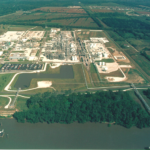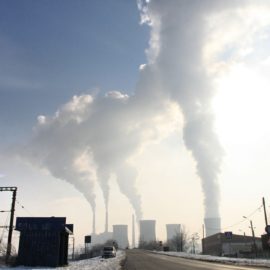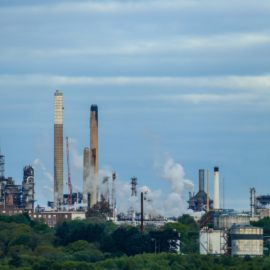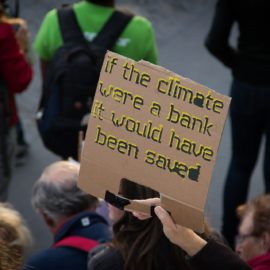
Denka and the EPA have reached agreement on their violations of hazard waste regulations.
Federal regulators announced Wednesday they had reached an agreement with the controversial Denka Performance Elastomer plant in LaPlace over violations of hazardous waste rules related to its handling of a likely cancer-causing chemical. The consent agreement between Japan-based Denka and the U.S. Environmental Protection Agency addresses the plant’s handling of chloroprene waste, produced from the manufacture of neoprene. It is the only plant in the country that manufactures chloroprene. EPA inspections in April and May found chloroprene contained in what is known as “Poly Kettle Strainer Waste” being transferred to an outside, open-air brine pit, with elevated levels of the chemical in the air in the area, the agency said. The agreement beginning on Jan. 31 will require Denka to stop putting the waste in that location, the EPA said. Other requirements will include providing employees with protective equipment. The company also will be required to dispose of the waste at a properly licensed hazardous waste disposal facility, instead of its past practice of disposing it at a sanitary landfill. And in transporting it to the facility, the company must use trucks equipped with special diesel engines that produce reduced carbon emissions.
nola.com
Denka will test the waste to see if it is no longer hazardous and if so they will be able to use that dump site.
If, as part of an ongoing series of tests of the wastes, the company is able to show that the material no longer meets the definition of hazardous waste, it will be relieved of the additional disposal requirements. No fines were announced in connection with the violations. “Denka will continue testing additional emissions reductions measures to reduce emissions from the management of this waste,” the EPA said in a statement. “These projects and any modifications will be subject to EPA review and approval. If successful, the emissions reduction projects alone have the potential to eliminate approximately two tons of chloroprene emissions per year from poly kettle strainer clean-out, according to Denka’s reported emissions inventory.” Denka said in a statement it will “develop and implement further emissions reduction efforts” as part of the agreement. “(Denka’s) commitment to additional emission reduction projects builds on the over 85 percent reduction in chloroprene emissions achieved at the facility as a result of the company’s investment of over $35 million in emissions reduction technology and equipment since it purchased the facility in 2015,” it said. “Ambient air monitoring conducted by DPE since 2016 shows similar reductions in concentrations of chloroprene at sites around the parish and along the company’s fence line as a result of these efforts.”
The plant is in Cancer Alley and a lot of interest has been paid to that area.
The plant is located along the Mississippi River in an industrialized area activists and some residents refer to as “cancer alley.” Companies operating there dispute the designation and say they have worked to reduce emissions. Separately, the EPA warned in October that the state Departments of Environmental Quality and Health may be violating federal civil rights laws by allowing Black people to suffer disproportionate impacts from air pollution in the area. The agency’s “letter of concern” was issued partly in response to complaints over Denka emissions. That warning reflected the increased focus on environmental justice issues under EPA Administrator Michael Regan, who visited Louisiana in November 2021. The visit by Regan, the first Black man to lead the EPA, was part of a tour to highlight longstanding environmental justice concerns. The first public notice of the hazardous waste violations came in October, when the EPA filed reports detailing its findings from the two unannounced inspections. It said the plant held wastes emitting high levels of chloroprene in an open storage bin in an area where workers were not wearing protective masks. The reports also said Denka disposed of more than 4 million pounds of waste that the EPA believes was contaminated with chloroprene in the River Birch sanitary landfill in Avondale between 2019 and 2021, possibly in violation of federal laws governing the disposal of hazardous wastes.
River Birch is not a part of this agreement.
The consent agreement announced Wednesday does not mention River Birch. The company noted in a statement that it “is not party to this agreement, as there is no suggestion that we ever did anything in violation of EPA rules.” “River Birch is proud of our proactive efforts to ensure that we did not take in products that were deemed to be hazardous, thereby continuing our safety record for all whom we serve,” it said.
No fines and Denka seems to have gotten of easily.



